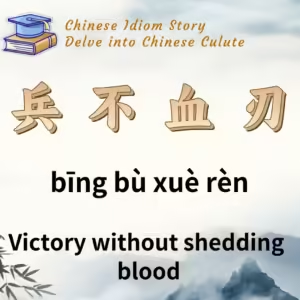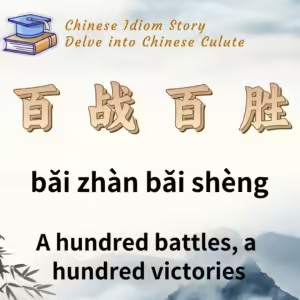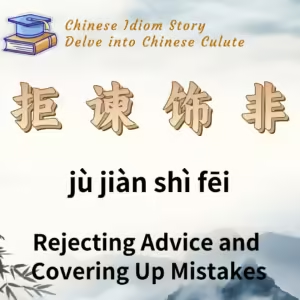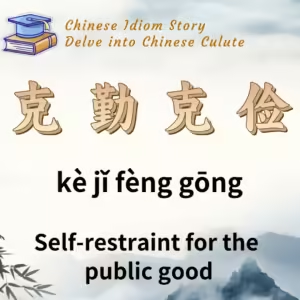
Chinese Idiom: 兵不血刃 (Bing Bu Xue Ren)
English Translation: Victory without shedding blood
pīn yīn: bīng bù xuè rèn
Idiom Meaning: This idiom refers to achieving victory without engaging in direct combat. It emphasizes the effectiveness of strategy and diplomacy over violence.
Historical Source: Xunzi’s Discussion on Warfare (《荀子 · 议兵》)
Idiom Story:
In 305 AD, General Chen Min led a rebellion and attacked Wuchang. Liu Hong, the governor of Jingzhou, ordered Tao Kan to counterattack. Tao Kan was known for his strict military discipline and personal example, earning the loyalty of his troops. He achieved several victories and was later promoted to General Longxiang and governor of Wuchang.
During a period of relative peace as governor of Guangzhou, Tao Kan would move 100 bricks in and out of his house daily, explaining, “I fear becoming too comfortable while the Central Plains are not yet recovered; I must remain prepared to serve my country.”
Later, while serving as governor of Jiaozhou, he was tasked with addressing the misconduct of Guo Mo, a rebellious cavalry officer who had killed General Liu Yin. Although Guo Mo was a fierce warrior, he feared facing Tao Kan and attempted to flee. However, before he could escape, Tao Kan’s forces surrounded the city. Recognizing the inevitable defeat, Guo Mo’s subordinate, Song Hou, captured him and surrendered the city without bloodshed.
As recorded in The Book of Jin, it noted, “Guo was a formidable warrior in the Central Plains. Hearing of Tao Kan’s approach, he submitted without shedding blood, further increasing his fear of Tao Kan.”
This story illustrates the principle of achieving military success through strategy and leadership rather than through violence, leading to the idiom “兵不血刃.”






